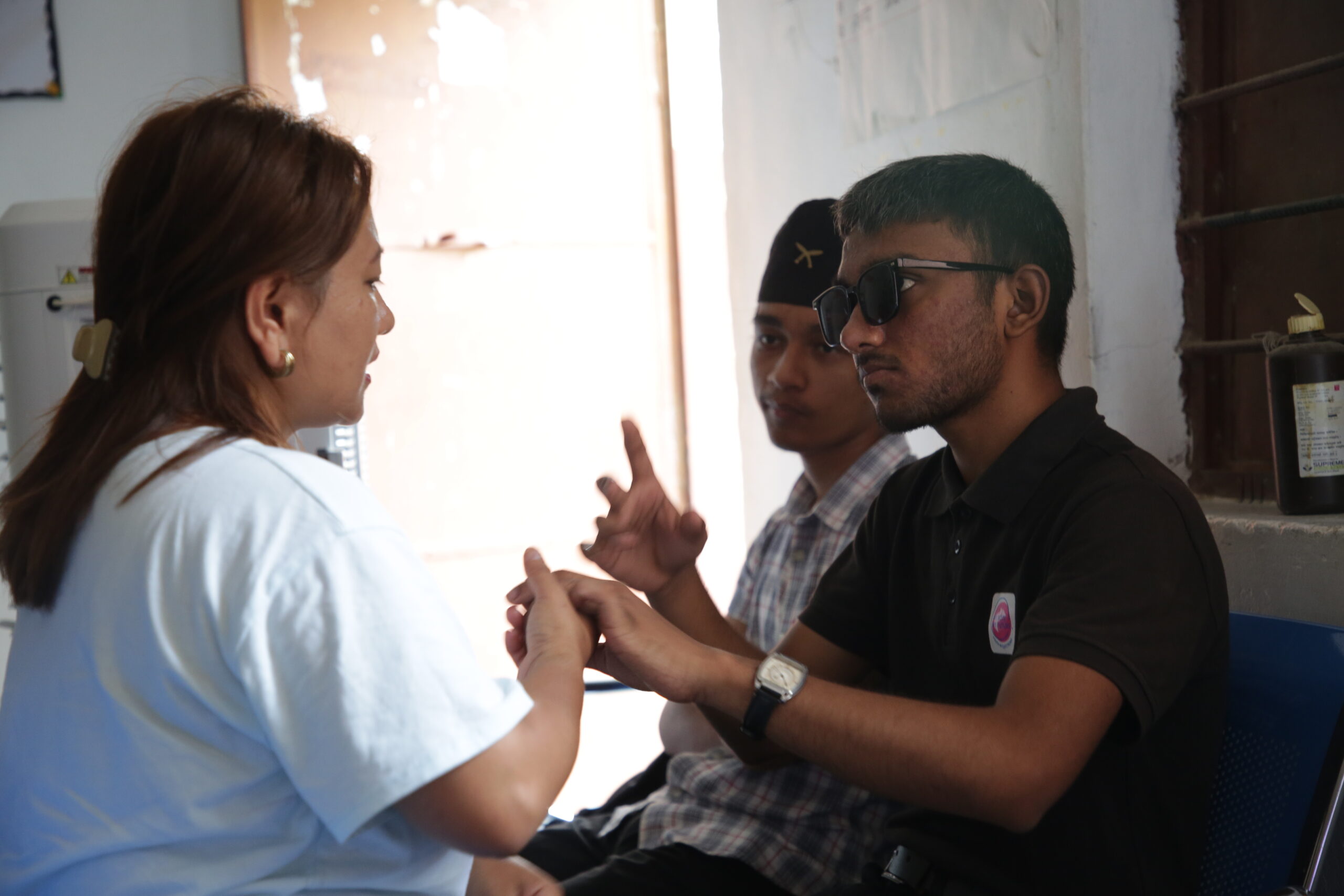Our work in Nepal
Sense International is working with the National Federation of the Deaf Nepal (NDFN) to ensure that people with deafblindness in Nepal have access to advice, support and life opportunities.
In Nepal, it is estimated that over 11,500 people live with deafblindness.*
People with disabilities in Nepal experience stigma and exclusion in their daily lives. They are more likely to live in poverty, be unemployed and miss out on formal education opportunities than people who do not have disabilities.
Together with a network of local disability organisations, we have established a National Resource Centre on deafblindness. The resource centre offers training for education and health professionals, as well as government officials. It also runs public awareness campaigns about deafblindness so as to improve understanding of the disability and reduce widespread stigma.
We are supporting children with deafblindness to meet their potential in four regions of Nepal. Our day centres and community workers offer expertise and tailored support to children with deafblindness and their families. They provide a range of therapies to help children interact, communicate and move around. They also support young people to build skills that foster greater independence, based on their individual needs.
We are ensuring that deafblindness is better understood so that people with deafblindness can realise their rights. Although deafblindness is recognised as a distinct disability in Nepal, we are working with our partners to raise greater awareness about deafblindness and to improve the definition included within the Disability Act. This will ensure that people with deafblindness are able to access the social protections that they are entitled to.
We are working closely with Organisations of People with Disabilities (OPDs) to bring about long-term change. All of our partners in Nepal are OPDs. Their expertise is instrumental not only in shaping the work underway, but also in influencing government to better respond to the requirements of people with disabilities throughout the country. By sharing their knowledge, more experienced OPDs are also supporting newer and smaller organisations to grow and flourish.
 Resource centres, Nepal
3 resource centres
Resource centres, Nepal
3 resource centres
have been established in Nepal to provide vital services and support for people with deafblindness in the country.

